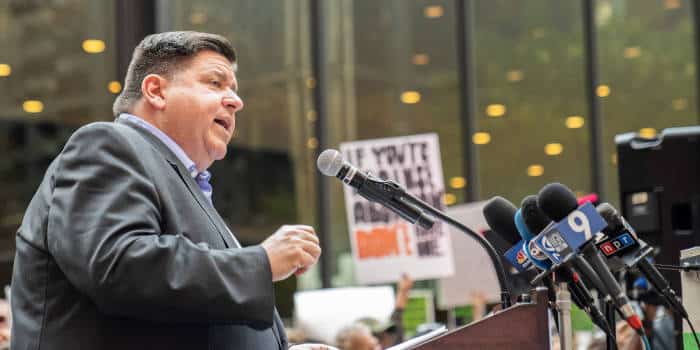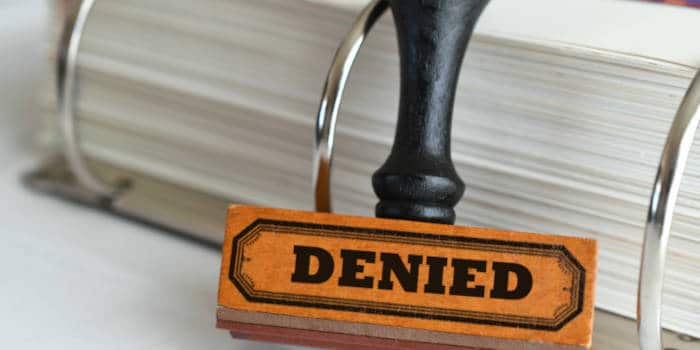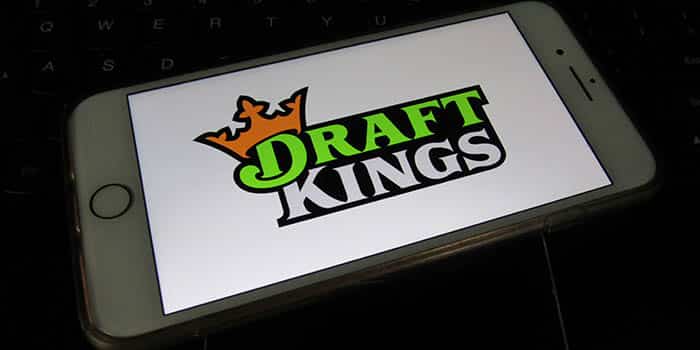- Casino
- By State
- Alabama
- Alaska
- Arizona
- Arkansas
- California
- Colorado
- Connecticut
- Delaware
- Georgia
- Florida
- Hawaii
- Idaho
- Illinois
- Indiana
- Iowa
- Kansas
- Kentucky
- Louisiana
- Maine
- Massachusetts
- Maryland
- Michigan
- Minnesota
- Mississippi
- Missouri
- Montana
- Nebraska
- Nevada
- New Hampshire
- New Jersey
- New Mexico
- New York
- North Carolina
- North Dakota
- Ohio
- Oklahoma
- Oregon
- Pennsylvania
- Rhode Island
- South Carolina
- South Dakota
- Tennessee
- Texas
- Utah
- Vermont
- Virginia
- Washington
- West Virginia
- Wisconsin
- Wyoming
- By State
- Slots
- Poker
- Sports
- Esports
Fact-checked by Velimir Velichkov
Illinois Governor Promulgates New Tax Betting Law
The Prairie State will now subject sports betting operators to a much tougher taxation regime starting only weeks from now

Signed by Gov. JB Pritzker, the new state budget approved for the Fiscal Year 2025 on Wednesday will now see sports betting tax rates increase as well. This measure is going to be implemented sooner than expected, with the start date set for July 1, during a relative lull in the sports betting season.
New Tax Betting Levy Pushes Max Tax Rate to 40%
Illinois may also lead the way for other states seeking to introduce their own sports gambling tax hikes, and the Prairie State itself joins New York as one of the toughest places to run a sports betting business.
Industry observers have argued that a high-handed tax rate would undermine regulated operators’ competitiveness and empower the offshore market, which continues to dominate locally despite the defeat of PASPA in 2018 and the mass legalization of sports gambling.
I'm incredibly proud to sign our sixth balanced budget today.
— Governor JB Pritzker (@GovPritzker) June 5, 2024
Our work advances fiscal stability while investing in the state's future and putting money back in the pockets of hardworking Illinoisans.
This is how we open up doors of opportunity for everyone for years to come. pic.twitter.com/uoEQr9k0Jt
Yet, Gov. Pritzker has found those fears unfounded for the most part, throwing his support fully behind HB 4951, voted just a week ago and in the final dash to closing the legislative session. Essentially, the tax rate will see the current tax rate increase from 15% to 40%, suppressing operators’ ability to offer promotions and sapping their marketing efforts breadth, critics worry.
The Sports Betting Alliance, an industry group represented by competitors such as BetMGM, Fanatics, DraftKings, and FanDuel, has heard the rallying cry, trying to communicate their concerns, but their pleas fell on deaf ears.
Making Sense of Illinois Sports Betting Tax Rate
Meanwhile, the state and governor’s office seem to agree with lawmakers and sponsors of HB 4951 and argue that the move will help raise an additional $200 million in revenue. However, there are a few conditions attached to the new rate of taxation. They are as follows:
- Up to $30 million in adjusted gross revenue is taxed at 20%
- The next $20 million is taxed at 25%
- Revenue from $50 million to $100 million will be subject to a 30% tax rate
- Revenue from $100 million to $200 million will be subject to 35%
- Anything in terms of revenue exceeding $200 million will be taxed at 40%
This way, the rate seems fair, but operators argue that they would see their competitiveness significantly diminished and worry about more players turning to offshore markets because of poorer odds and markets offered locally.
Sports Betting in US Entering Era of Tougher Regulation
This is not the only worry shared by operators at large, as lawmakers begin to shift their attitude towards the industry (think bill seeking to shut down prop bets and pass tighter regulation on sports gambling ads). After New York unceremoniously levied its sports betting firms with a 51% tax, other states have been seriously thinking about pushing their own rates – initially between 10% and 15% for most states.
Ohio’s governor, Mike DeWine, is seemingly open to the idea and not too worried about working with legislators to make it happen. New Jersey is looking to set the tax to 30%, and Massachusetts is similarly hoping to copy New York, but efforts have been scrapped so far.
Related Topics:
Stoyan holds over 9 years of esports and gambling writing experience under his belt and is specifically knowledgeable about developments within the online scene. He is a great asset to the Gambling News team with his niche expertise and continual focus on providing our readers with articles that have a unique spin which differentiates us from the rest.
Must Read
More Articles





Sports
July 15, 2025
Undercover Spotters Catch Wimbledon Betting Spies

Industry
July 15, 2025
UK Considers Gambling Tax Hike to Fill Budget Gap

Poker
July 15, 2025
Leo Margets, Ready for Historic WSOP Final Table

Casino
July 15, 2025
Uno Is Coming for Casinos in the United States













